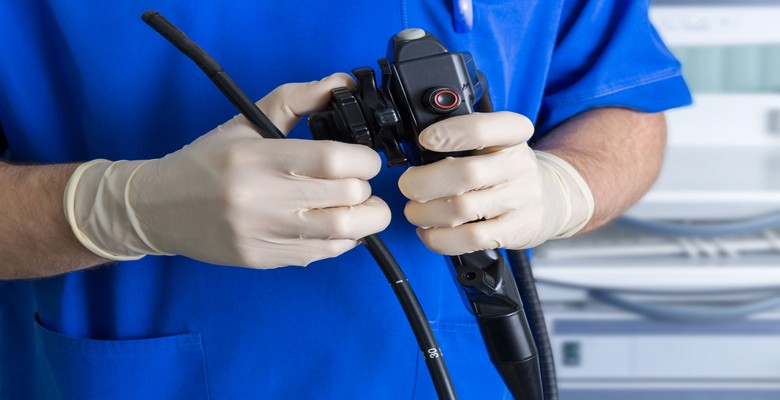• Abhishek Maternity & Nursing Home is dedicated to serving your health care needs, and your well-being is our top priority.
• Endoscopy means looking inside and typically refers to looking inside the body for medical reasons using an endoscope, an instrument used to examine the interior of a hollow organ or cavity of the body.
• Endoscopy is a procedure that uses specialized tools to view and operate on the internal organs and vessels of your body. This allows surgeons to view problems within your body without having to make large incisions.
• A surgeon inserts an endoscope through a small incision or through an opening in the body such as the mouth. An endoscope is a specialized flexible tube with an attached camera that shows the work being done. Doctor can use forceps (tongs) and scissors on the endoscope to operate or remove tissue.
• Laparoscopy is a type of surgery. As a diagnostic procedure, it is used to examine the organs inside your abdomen. This is also referred to as a diagnostic laparoscopy.
• Laparoscopy uses an instrument called a laparoscope. The laparoscope is a long, thin tube with a high-intensity light and a high-resolution camera at the front. The instrument is inserted through an incision in your abdominal wall. As it moves along, the camera relays images to a video monitor.
• Laparoscopy allows your physician to see inside your body in real time, without open surgery. Your physician also can obtain biopsy samples during this procedure.
• A laparoscopy often is used to identify and diagnose the source of abdominal or pelvic pain. It usually is performed after other noninvasive options have been tried.
In many cases, abdominal problems are observed with imaging techniques such as:
- Ultrasound
- Computed tomography (CT) scan
- Magnetic resonance imaging (MRI)
Your physician may recommend laparoscopy to examine the following organs:
- Appendix
- Gallbladder
- Liver
- Pancreas
- Small and large bowel
- Spleen
- Stomach
- Pelvic or reproductive organs
By observing these areas with a laparoscope, your physician can investigate
- Abdominal pain
- An abdominal mass or tumor
- Fluid in the abdominal cavity
- Liver disease
- The effectiveness of certain treatments
- The degree to which a cancer has progressed

